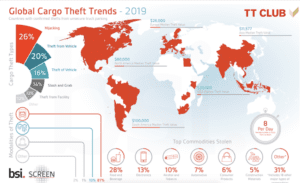 Up, Up, Down, Down, Left, Right, Left, Right, B, A, Start. The Konami Code. For any kid that grew up in the 80’s this code should resonate. It was the guarantee (or at least your best chance) that you could beat Contra, a multi-player, run-and-gun video game developed by Konami in 1988. However, the code was not created for Contra, and possibly never meant to see the light of day. As it turns out, the Konami Code was created by Kazuhisa Hashimoto, who was developing the home port of the 1985 arcade game Gradius for the Nintendo Entertainment System (NES). Hashimoto originally created the cheat code because he felt the game was too difficult to play during its development cycle. The code was left in the game and went on to appear in dozens of games throughout the years, including Contra. In a statement on Twitter, Konami said “We are saddened to hear about the passing of Kazuhisa Hashimoto, a deeply talented producer who first introduced the world to the ‘Konami Code.’ Our thoughts are with Hashimoto-san’s family and friends at this time. Rest in Peace.”
Up, Up, Down, Down, Left, Right, Left, Right, B, A, Start. The Konami Code. For any kid that grew up in the 80’s this code should resonate. It was the guarantee (or at least your best chance) that you could beat Contra, a multi-player, run-and-gun video game developed by Konami in 1988. However, the code was not created for Contra, and possibly never meant to see the light of day. As it turns out, the Konami Code was created by Kazuhisa Hashimoto, who was developing the home port of the 1985 arcade game Gradius for the Nintendo Entertainment System (NES). Hashimoto originally created the cheat code because he felt the game was too difficult to play during its development cycle. The code was left in the game and went on to appear in dozens of games throughout the years, including Contra. In a statement on Twitter, Konami said “We are saddened to hear about the passing of Kazuhisa Hashimoto, a deeply talented producer who first introduced the world to the ‘Konami Code.’ Our thoughts are with Hashimoto-san’s family and friends at this time. Rest in Peace.”
And now on to this week’s logistics news.
- Amazon may not have enough goods from China for Prime Day
- China pushes factories to re-open, risking renewed virus spread
- China lifts import restrictions on US farm goods
- Fast food delivery drone service to begin operating in Dublin
- MIT’s “tag of everything” could protect the supply chain
- Descartes acquires Peoplevox
- UPS seeks exemption for training on double trailers
- This stinks: Garlic prices are going up
- Report: Trucks remain prime target of cargo thieves worldwide
![]() Coronavirus has been a hot topic lately as it causes major disruptions to the global supply chain. As we’ve written about here over the last couple of weeks, the virus is impacting retailers, the high-tech supply chain, and the automotive and pharmaceutical supply chains. And try as it might, even Amazon cannot make itself immune to the global crisis. Other than the obvious reason of supply chain disruption, why does this matter to Amazon? Well, the company is concerned that it may not have enough goods from China for Prime Day, which is scheduled for July 6. Amazon generally runs a lean inventory management process which keeps less inventory in warehouses. This tactic puts the company at a greater risk for disruption from the coronavirus outbreak. According to some reports, Amazon has recently begun ordering six to eight weeks’ worth of some products made in China versus its usual two- to three-week stash to prepare for a potential shortfall of goods. This will certainly be an interesting story to monitor over the coming months.
Coronavirus has been a hot topic lately as it causes major disruptions to the global supply chain. As we’ve written about here over the last couple of weeks, the virus is impacting retailers, the high-tech supply chain, and the automotive and pharmaceutical supply chains. And try as it might, even Amazon cannot make itself immune to the global crisis. Other than the obvious reason of supply chain disruption, why does this matter to Amazon? Well, the company is concerned that it may not have enough goods from China for Prime Day, which is scheduled for July 6. Amazon generally runs a lean inventory management process which keeps less inventory in warehouses. This tactic puts the company at a greater risk for disruption from the coronavirus outbreak. According to some reports, Amazon has recently begun ordering six to eight weeks’ worth of some products made in China versus its usual two- to three-week stash to prepare for a potential shortfall of goods. This will certainly be an interesting story to monitor over the coming months.
 On that note, China is now pushing factories to re-open, which could potentially increase the risk for a renewed spread of the virus. Considering all the supply chain turmoil and the risk to the overall economy of China, the world’s second largest, central and local governments are loosening the criteria for factories to resume operations. China’s leader Xi Jinping and top leaders are urging companies to resume production so the country can continue to meet lofty goals for growth and economic development in 2020. While more and more provinces move to get back to business as usual, Chinese authorities reiterated that Wuhan will stay locked down, retracting a statement sent earlier in the day that had announced partial easing of travel curbs. The conflicting messages underscore the dilemma China faces on how to spur its ailing economy and curb the deadly virus.
On that note, China is now pushing factories to re-open, which could potentially increase the risk for a renewed spread of the virus. Considering all the supply chain turmoil and the risk to the overall economy of China, the world’s second largest, central and local governments are loosening the criteria for factories to resume operations. China’s leader Xi Jinping and top leaders are urging companies to resume production so the country can continue to meet lofty goals for growth and economic development in 2020. While more and more provinces move to get back to business as usual, Chinese authorities reiterated that Wuhan will stay locked down, retracting a statement sent earlier in the day that had announced partial easing of travel curbs. The conflicting messages underscore the dilemma China faces on how to spur its ailing economy and curb the deadly virus.
 In other China-related news, trade relations with the US may have taken a step forward. US officials have said that Chinese leaders have taken the first steps toward implementing the first phase of a trade deal between the two countries: the lifting of import restrictions on US farm goods. Chinese leaders have lifted import restrictions on US poultry, poultry products, and pet food since the deal took effect on February 14. Those provisions were part of a 90-page written agreement signed in January. The deal calls for China to increase its purchases of US agricultural products by $32 billion over a two-year period. This announcement comes amid fears that the coronavirus outbreak could delay China’s promise to purchase more US agricultural goods.
In other China-related news, trade relations with the US may have taken a step forward. US officials have said that Chinese leaders have taken the first steps toward implementing the first phase of a trade deal between the two countries: the lifting of import restrictions on US farm goods. Chinese leaders have lifted import restrictions on US poultry, poultry products, and pet food since the deal took effect on February 14. Those provisions were part of a 90-page written agreement signed in January. The deal calls for China to increase its purchases of US agricultural products by $32 billion over a two-year period. This announcement comes amid fears that the coronavirus outbreak could delay China’s promise to purchase more US agricultural goods.
 In the coming weeks the first official fast-food drone delivery service will be up and running (or flying) in South Dublin. According to Irish drone firm Manna Aero founder Bobby Healy, the company will team up with Just Eat, Camile Thai, and Ben & Jerrys for airborne food deliveries in under three minutes starting this March. It appears that the target market will be universities, as the company has indicated that food will be prepared in nearby ‘dark kitchens’ and flown to students in under three minutes. The drone will hover, lower the food by removable thread, and then return to base. While the company hopes that the future will hold 50,000 delivery drones throughout Ireland and the UK, the initial launch will be limited to 30,000 people.
In the coming weeks the first official fast-food drone delivery service will be up and running (or flying) in South Dublin. According to Irish drone firm Manna Aero founder Bobby Healy, the company will team up with Just Eat, Camile Thai, and Ben & Jerrys for airborne food deliveries in under three minutes starting this March. It appears that the target market will be universities, as the company has indicated that food will be prepared in nearby ‘dark kitchens’ and flown to students in under three minutes. The drone will hover, lower the food by removable thread, and then return to base. While the company hopes that the future will hold 50,000 delivery drones throughout Ireland and the UK, the initial launch will be limited to 30,000 people.
 Technology and tags go hand in hand. For years (maybe decades?), RFID tags have been the technology that will supposedly revolutionize inventory management and help to combat counterfeit items. Another technology that can help alleviate counterfeit items is blockchain. Now, researchers at MIT are developing a new tag that can fit on nearly any item to help with both inventory accuracy and anti-counterfeit measures. MIT researchers say they have developed a millimeter-sized, cryptographic identification (ID) tag that represents a giant leap forward in the fight to curb counterfeiting and create a more secure supply chain. The battery-free ID chip is small enough to fit on virtually any product and smart enough to verify its authenticity across complex supply chains. The hope is that the chip, which the researchers say is inexpensive to manufacture and implement, will help combat the roughly $2 trillion worth of counterfeit goods expected to be sold worldwide this year.
Technology and tags go hand in hand. For years (maybe decades?), RFID tags have been the technology that will supposedly revolutionize inventory management and help to combat counterfeit items. Another technology that can help alleviate counterfeit items is blockchain. Now, researchers at MIT are developing a new tag that can fit on nearly any item to help with both inventory accuracy and anti-counterfeit measures. MIT researchers say they have developed a millimeter-sized, cryptographic identification (ID) tag that represents a giant leap forward in the fight to curb counterfeiting and create a more secure supply chain. The battery-free ID chip is small enough to fit on virtually any product and smart enough to verify its authenticity across complex supply chains. The hope is that the chip, which the researchers say is inexpensive to manufacture and implement, will help combat the roughly $2 trillion worth of counterfeit goods expected to be sold worldwide this year.
![]() Descartes Systems Group has announced the acquisition of UK-based Peoplevox for $24.5 million. Descartes’ CEO Edward Ryan said the acquisition complements the company’s previous investment in e-commerce fulfillment solutions, including its 2017 purchase of ShipRush and its 2015 purchase of Oz Development. Ryan said the latest acquisition “adds density and domain expertise to what is an increasingly important area of our business—ecommerce.” As my colleague Clint Reiser pointed out, PeopleVox provides a cloud-based WMS solution that addresses the needs of one of the fastest growing WMS segments – namely a subscription-based SaaS solution designed to support direct-to-consumer fulfillment.
Descartes Systems Group has announced the acquisition of UK-based Peoplevox for $24.5 million. Descartes’ CEO Edward Ryan said the acquisition complements the company’s previous investment in e-commerce fulfillment solutions, including its 2017 purchase of ShipRush and its 2015 purchase of Oz Development. Ryan said the latest acquisition “adds density and domain expertise to what is an increasingly important area of our business—ecommerce.” As my colleague Clint Reiser pointed out, PeopleVox provides a cloud-based WMS solution that addresses the needs of one of the fastest growing WMS segments – namely a subscription-based SaaS solution designed to support direct-to-consumer fulfillment.
 UPS claims that its “hire from within culture” is clashing with federal driver training regulations so the package delivery giant is pleading its case to regulators. In a letter sent to the Federal Motor Carrier Safety Administration (FMCSA) on January 23, UPS has asked for a “renewable five-year exemption so that the company can provide behind-the-wheel, on-road skills training to commercial learner’s permit (CLP) holders pulling twin 28-foot trailers (doubles) during their initial training.” This exemption will impact about 1,000 driver trainees per year, and would allow UPS to work around current federal regulations that prohibits drivers from operating a commercial vehicle if the driver does not have a CLP or commercial driver’s license (CDL)s. Current regulations do not permit a double / triple trailers endorsement on CLPs.
UPS claims that its “hire from within culture” is clashing with federal driver training regulations so the package delivery giant is pleading its case to regulators. In a letter sent to the Federal Motor Carrier Safety Administration (FMCSA) on January 23, UPS has asked for a “renewable five-year exemption so that the company can provide behind-the-wheel, on-road skills training to commercial learner’s permit (CLP) holders pulling twin 28-foot trailers (doubles) during their initial training.” This exemption will impact about 1,000 driver trainees per year, and would allow UPS to work around current federal regulations that prohibits drivers from operating a commercial vehicle if the driver does not have a CLP or commercial driver’s license (CDL)s. Current regulations do not permit a double / triple trailers endorsement on CLPs.
 In our last piece of coronavirus news, the ongoing outbreak is having an impact on something that most of us take for granted: garlic. The outbreak is causing garlic supply disruptions in China, which is the world’s largest garlic producer. In fact, over the last few years, China has been responsible for as much as 80 percent of global garlic supply. More than two-thirds of the fresh garlic that the United States imports comes from China. Retail prices are at their highest levels in about two years. A sleeve of garlic, which typically contains 5 heads of garlic, cost an average of $1.42 earlier this month, which is up 29 percent from a year ago.
In our last piece of coronavirus news, the ongoing outbreak is having an impact on something that most of us take for granted: garlic. The outbreak is causing garlic supply disruptions in China, which is the world’s largest garlic producer. In fact, over the last few years, China has been responsible for as much as 80 percent of global garlic supply. More than two-thirds of the fresh garlic that the United States imports comes from China. Retail prices are at their highest levels in about two years. A sleeve of garlic, which typically contains 5 heads of garlic, cost an average of $1.42 earlier this month, which is up 29 percent from a year ago.
 And finally, according to international transport and logistics insurer TT club and supply chain intelligence firm BSI, trucks continue to be the overwhelming target of cargo thieves worldwide. According to the latest report, 87 percent of cargo thefts targeted trucks in 2019, up from 84 percent in 2018. This dwarfs theft from all other modalities, including warehouses and trains. The report also indicated that 60 percent of truck incidents occurred while the vehicles were in transit, in rest areas, or at an unsecured parking location. The top three commodities stolen from cargo trucks in 2019 were food and beverages, electronics, and alcohol and tobacco.
And finally, according to international transport and logistics insurer TT club and supply chain intelligence firm BSI, trucks continue to be the overwhelming target of cargo thieves worldwide. According to the latest report, 87 percent of cargo thefts targeted trucks in 2019, up from 84 percent in 2018. This dwarfs theft from all other modalities, including warehouses and trains. The report also indicated that 60 percent of truck incidents occurred while the vehicles were in transit, in rest areas, or at an unsecured parking location. The top three commodities stolen from cargo trucks in 2019 were food and beverages, electronics, and alcohol and tobacco.
That’s all for this week. Enjoy the weekend and the song of the week, the Warrior’s Code by the Dropkick Murphys.

















